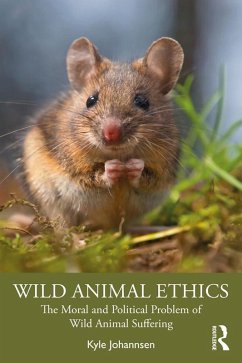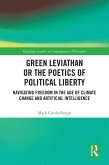Dieser Download kann aus rechtlichen Gründen nur mit Rechnungsadresse in A, B, BG, CY, CZ, D, DK, EW, E, FIN, F, GR, HR, H, IRL, I, LT, L, LR, M, NL, PL, P, R, S, SLO, SK ausgeliefert werden.
Bob Fischer, Department of Philosophy, Texas State University
'Wild Animal Ethics is an excellent book that makes a powerful case for reducing wild animal suffering. Johannsen convincingly shows that assisting wild animals should be a top moral and political priority whether we care about animal welfare, animal rights, or both. He also addresses a number of important issues ranging from the ethics of killing predators to the ethics of genetic modification. Every reader will benefit from engaging with the arguments in this book, and wild animals will benefit enormously if we accept the main conclusions.'
Jeff Sebo, Affiliated Professor of Bioethics, Medical Ethics, and Philosophy, New York University
'Much has been written about the appalling suffering that we inflict on animals through practices such as factory farming. But the suffering of animals in the wild is vastly more extensive. Wild Animal Ethics defends the claim that although we are not the cause of this pervasive suffering, we nevertheless have moral reasons to try to mitigate it. Johannsen's arguments are neither naïve nor utopian. They make a convincing case for the importance of research into ways of intervening beneficently in the natural world, particularly through techniques of genetic modification that could gradually, and without harmful side effects, diminish predation and modes of reproduction that doom the vast majority of offspring to early, painful deaths. The suffering of animals in the wild is a serious moral issue, to which this book is a sensible, well-argued, and humane response.'
Jeff McMahan, White's Professor of Moral Philosophy, University of Oxford
'This is a slim volume of just 100 printed pages, but it delivers a big punch. The author does not shy away from the notion that this is a very personal assessment of wild animal suffering (WAS) and one that not everyone will agree with. His arguments however are well considered, referenced and, above all, written in a style that makes them accessible to all readers irrespective of their background in either philosophy, ethics, or animal welfare.'
Elizabeth Mullineaux, Animal Welfare









